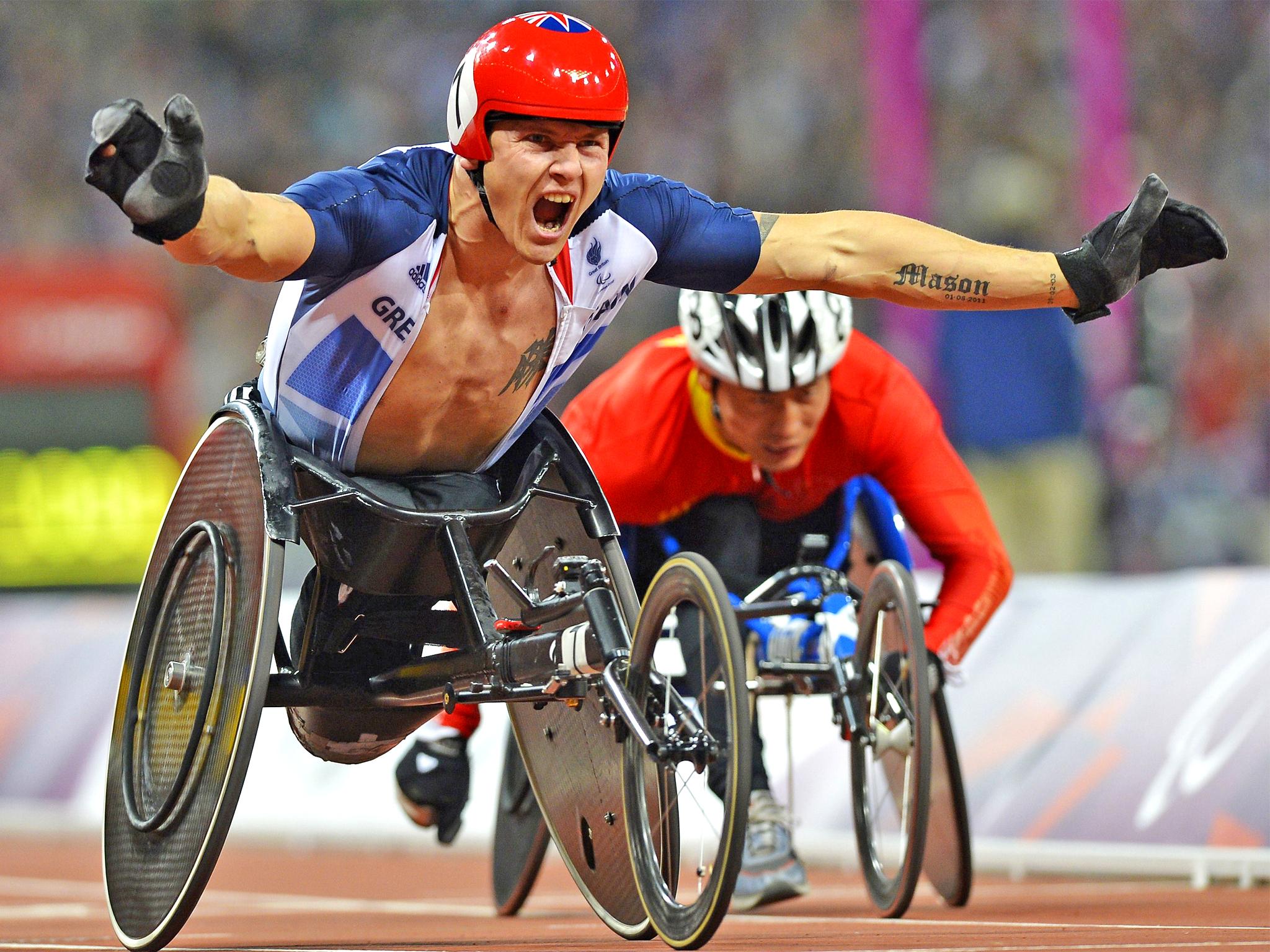As a disabled person, I know we have to abolish the Paralympics
If the Olympics were fully integrated, with para-events running alongside traditional events, organising committees wouldn’t be able to let the Paralympics fall by the wayside when issues such as funding intervene


Billed as “Britain’s first fully inclusive fun run”, no false modesty there then, Sunday’s Parallel London event was a baby-step forward.
It proved that you can put “runners” with a wide variety of disabilities using a wide variety of conveyances (racing wheelchairs, “road” wheelchairs, frames and more) together with their able bodied counterparts and pull it off.
While the event was clearly set up with the former in mind, it seemed to me that there were a number of able bodied runners who had entered not because they had disabled friends or family members but because they simply wanted to participate in a run in the Olympic Park.
More power to them, if that was indeed the case. They helped Parallel London stand as a slap in the face to those who bleat about “elf ’n safety” as a reason to exclude those in wheelchairs from similar events aimed primarily at those using their legs to get round courses.
It might take a bit of thought and effort as regards planning, but there aren’t any really good reasons to either keep wheelchair users out, or to strictly limit their participation. I’m looking at you here, London Marathon, with your pitiful 12 places for “day chair” users outside of the elite wheelchair events.
The real enemy of inclusion is not so much prejudice as it is simple laziness. Lazy stereotypes, lazy thinking and a desire to put people with disabilities in the disability box and leave them there, because life would be so much easier if they just stayed home.
Parallel London represented a partial riposte to that thinking, but there is a pressing need for more initiatives like it, and not just at the level of “fun” runs. The problems of the Rio Paralympics speak to that.
London 2012 and, yes, Beijing in 2008 proved what can be done. However, the Rio Games have represented a sad step backwards: under resourced, under promoted, and very much the poor relation to this year’s Olympics in ways that the London and Beijing Paralympics were not. Rio rather serves as a depressing metaphor for the way disabled people are treated: as second class citizens.
Parallel London demonstrated that it is possible to do things differently, at least at the grass roots level, just as the 2014 Commonwealth Games in Glasgow with its 22 medals across five para-sports showed how integration can be achieved at elite events.
If the Olympics were fully integrated, with para-events running alongside traditional events, organising committees wouldn’t be able to let the Paralympics fall by the wayside when issues such as funding intervene.
I know that just putting on the Olympics is a major organisational feat; an altogether bigger challenge than the Commonwealth Games, large though that event is. When people suggest combining it with the Paralympics, another major organisational feat on its own, the usual reaction is for people to recoil in horror. It can’t be done! We shouldn’t even try!
Is too much attention paid to the arguments against running the events alongside each other? Because, well, it’s just easier like that? I’m beginning to suspect that it is.
All sorts of fuzzy slogans are trotted out during the Olympics, such as “believe”, “achieve” and “just do it”. Oh, hang on, that last one is Nike’s. And Nike is not an Olympic sponsor.
It would be interesting to see what would happen at the IOC if the maker of the LeBron Flyease shoe, with its wrap-around zipper entry aimed at disabled athletes (I have a pair), waved some money in front of its members on condition that they would “Just Do It” and run the two sets of games together. Perhaps it would concentrate minds.
As for the grass roots? There were three distances available to participants in Parallel London: a 10k, a 5k and a 1k. The three runs started at different times, but they used the same course, and therefore merged during the course of events. Children participated alongside all those wheeled conveyances, including my own.
This shouldn’t be read as an unqualified endorsement of Sunday’s event. There was too much shouting about “empowerment” and “inspiration” for my liking. It was a little too loud. It was a little patronising.
I would imagine loud PAs and forced jollity are not uncommon at able bodied fun runs. But it was laid on a little thick at Parallel London. Most disabled people I know get annoyed at that sort of thing. They don’t want a hug, and they don’t want people gushing about how inspirational they are. They just want to be given a chance to compete in events like their able bodied friends and families are. And alongside them if at all possible.
It would only take a few tweaks to get the balance right, however. And the important thing is that the organisers were willing to give it a try in the first place.
Now it is time for others to step up to the plate, or rather, up to the starting line. With apologies to Nike: Just Damn Do It already.





Join our commenting forum
Join thought-provoking conversations, follow other Independent readers and see their replies